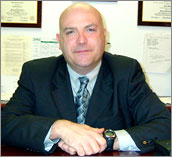| |
 |
|
 |
 |
 |
|
 |
|
 |
The
driver is then served
with a DMV order of suspension
or revocation, which serves
as a 30-day license. The
suspension or revocation
takes effect following
those 30 days. Within
10 days from the citation
date, drivers can request
a DMV hearing. At the
DMV hearing, only a limited
number of issues may be
considered. They are: |
 |
- The
officer had reasonable
cause to believe
the driver was
driving with an
illegally high
BAC.
- The driver was
arrested or "lawfully
detained"
if age 21 or less.
- The driver refused
a chemical test
or a preliminary
alcohol screening
test.
- The driver was
informed that
a refusal would
result in suspension
or revocation.
|
|
|
|
DMV
hearings are independent of
criminal prosecutions. That
is, proceedings and findings
in one venue do not affect proceedings
and findings in the other. For
example, if a defendant's charges
are dropped in criminal court,
this decision has no effect
on the DMV’s determination.
There is one important exception
however, a not guilty verdict
in a criminal case overturns
a DMV determination and its
sanctions. |
 |
It
is important to understand
that while DMV hearings
are difficult to win,
they are vital to winning
the criminal case. At
DMV hearings, I will
have a chance to cross
examine the arresting
officer. I will record
the proceeding and use
it later at trial. If
the same officer’s
statement doesn’t
match exactly what was
said at the DMV hearing,
those contridictions
in the officer’s
testimony can be used
against the state.
It is vital to remember
that my fees always
include the DMV hearing.
Please also remember
that you have only 10
days from the date of
arrest to request a
DMV hearing. If you
wish to retain my services
to represent you in
your DUI case and appear
at your DMV hearing,please
call DUI Terminator,
Kenton Koszdin at 800-Kick
DUI.
|
 |
 |
|
|
 |
|
 |
|
|
|
 |
|
|